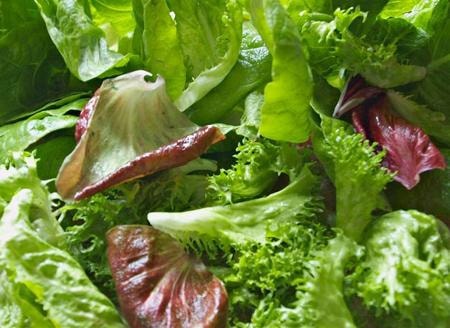The effects of chicory
Chicory is a tonic herb. It increases the excretion and discharge of urine from the body, it is also a diuretic...
Chicory is a valuable food and medicinal plant, originating from the Mediterranean and Eastern India. This is also a vegetable that was cultivated by the ancient Romans and Greeks over 2,000 years ago. Today, chicory is found everywhere, used to make salads, delicious and nutritious dishes that also have the effect of curing many diseases.
Illustration
Medicinal effects of chicory
General medicinal effects: Chicory is a tonic herb. It increases the excretion and discharge of urine from the body, it is also a diuretic so it is beneficial to human health, especially for the function of the liver and bladder.
- Chicory is good for eyesight: According to many studies, chicory contains many plant elements that are useful for the vision system. Especially rich in Vitamin A. If lettuce juice is supplemented with carrots, celery, parsley, it will create a drink that is very useful for the nervous and muscular systems. In addition, it also has the effect of overcoming eye health errors. If you drink half a liter of chicory juice every day for a few months, your eyes will be brighter and sometimes you won't need glasses.
- Chicory has the effect of preventing constipation: Chicory itself is a laxative food so it is very useful in treating chronic constipation. Eating regularly every day or drinking juice from chicory will help the digestive system work well without constipation.
- Overcoming anemia: Using kale combined with celery and parsley will help increase blood for the body.
- Chicory is good for cardiovascular disease and diabetes: According to research, the inulin in chicory not only helps improve constipation and diarrhea caused by infection and cancer, but is also good for cardiovascular disease and diabetes... Chicory has been used as medicine in many places around the world for over 5,000 years. Resin from chicory stems is used to increase milk production for postpartum women. Flowers are used to treat eye swelling. Crushed leaves are applied to bruises. Roots are used as a diuretic, to treat fever and jaundice.
In addition to inulin, lettuce also contains oligosaccharides, which are highly biologically active probiotics or natural probiotics that are beneficial to the body, especially the intestines. Inulin in chicory is very useful in creating probiotics and improving calcium levels in the large intestine, especially in people with infections, cancer, cardiovascular disease and diabetes. In addition, chicory is also a source of raw materials to make a flavor converter, increasing the sweetness of sugar up to 300 times when used in cooking or baking.
- Detoxify the liver and bladder: All parts of chicory from root to tip can be used as herbs to treat liver disorders. Every day, you should drink 30-60ml of chicory juice, including the roots, divided into 3 times a day to detoxify the liver, helping the liver to function well. In addition, chicory juice also treats bladder dysfunction, cholestasis, jaundice and splenomegaly, helping the liver and gallbladder to perform their inherent functions well.
- Overcoming respiratory disorders: If you use chicory juice combined with carrot and celery juice, it will reduce asthma and hay fever, while providing more nutrients that are useful for the body, making you full quickly, limiting the intake of carbohydrates and sweets, thus limiting inflammatory diseases, especially using dry chicory root powder mixed with honey 3 times a day (1/2 teaspoon each time) will help loosen phlegm and reduce bronchitis. In addition, chicory is also a food rich in fiber that is beneficial for the digestive system, reducing incurable diseases, especially cardiovascular and diabetes.
According to Vietnam Agriculture - NT






